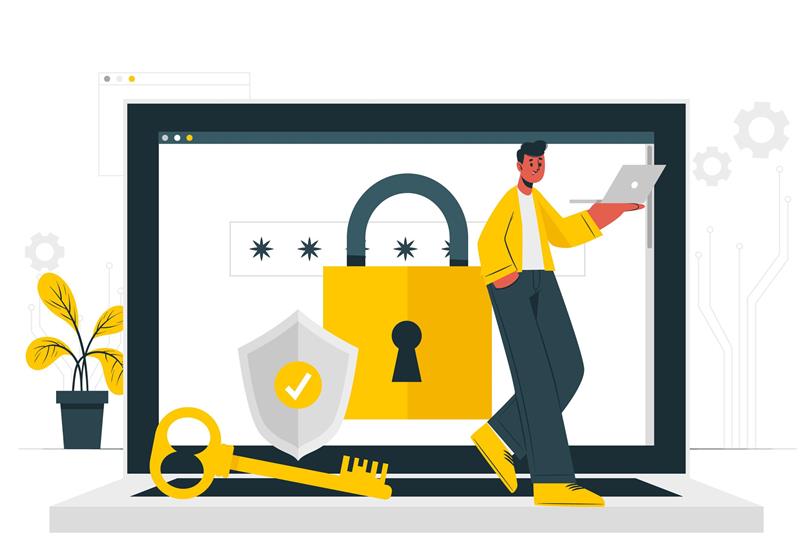How to Keep Your Website Secure in 2021
It’s essential to keep your website secure even if you don’t have any sensitive data that needs to be protected. Keep reading to find out more about the best practices for website security.
Even if you think your website isn’t even worth hacking, you’re actually at risk of a cyberattack at all times. In the US only, a hacking attack happens every 39 seconds.
The goal of most website breaches isn’t to steal your data, but to use your server as a part of a botnet, to store illegal files, to mine Bitcoins, or simply to use it for email spam.
That’s why it’s essential to keep your website secure even if you don’t have any sensitive data that needs to be protected. Keep reading to find out more about the best practices for website security.
Keep your website updated
Your website content is not the only thing that you need to keep fresh and up to date. The backend of your website needs regular updates as well.
These updates are especially important if you're using a website hosting platform such as WordPress.
You need to regularly run updates not only for your WordPress core software but also for all the plugins you’ve installed. If you fail to do so, your website can quickly become outdated and vulnerable to cyber attacks, as well as bugs and glitches.
Hackers scan through thousands of websites looking for those with vulnerabilities in their software, so it pays off to be vigilant and stay on top of your updates.
Use secure passwords
Using secure passwords should be a no-brainer by now. However, you’d be surprised by the number of people who use simple and weak passwords such as “password123”.
Your passwords should be long and complex. Ideally, a secure password should contain multiple random words along with special characters and numbers. That way, your password will be virtually impossible to guess and it will be difficult to break it with a brute-force program.
If you have trouble keeping track of your complicated passwords or struggle with coming up with ones that are complex enough, you can use a password management app, which will help you create strong passwords, save them, and even fill in your login dates automatically.
Education is key
Weak passwords are a great example of how human error or negligence can negatively affect website security. Unfortunately, the human factor is one of the biggest threats to cybersecurity.
Oftentimes, cyberattacks come in the form of social engineering, relying on manipulation and lack of knowledge in order to acquire sensitive information. Organizing regular employee training and making sure that everyone within your organization is fully aware of these threats is essential for keeping not only your website but your whole business secure.
Additionally, you should make sure that your IT team has the proper education and enable your main security person to get the best certificate IV in information technology. Once you have a properly trained cybersecurity team, it will be much easier to get everyone else on board.
Use Anti-Malware Software
Anti-malware software might seem too technical and intimidating, but it actually does all the hard work for you so you don’t have to worry too much about the technical stuff.
There are many different anti-malware options you can choose from, so make sure to opt for the one that fits your website’s needs, as well as your budget.
Here are some features you should look out for in anti-malware software:
- Web application firewall
- Web scanning
- Malware detection and removal
- Vulnerability patching
- DDoS protection
- PCI compliance
Install SSL
You’ve probably noticed that some websites have a small security icon in the left corner of the URL field. This icon indicates whether a website has activated the encrypted SSL protocol,
SSL keeps an internet connection secure and safeguards any sensitive data that’s being transferred between two systems. It prevents criminals from reading or modifying information that’s being transferred, preventing the exposure of personal details.
By having an SSL certificate, your website will not only be more secure, but it will also get an SEO boost and rank higher SEO since Google prioritizes secure websites. Additionally, your customers will appreciate the effort to keep their personal data secure and will be more likely to choose your business rather than a competitor with a less secure website.
Run regular backups
Even if you take all the prior precautions, you can still experience a security breach. In case this happens, you won’t be able to fully recover unless you perform regular backups.
The frequency of your backups depends on your needs, and it can even be as often as multiple times a day. Generally, the more frequently you run backups the better.
Additionally, you should keep your backups both on-site and off-site, so even in the case of severe attacks, you can still fully recover your data. Apart from cyberattacks, data loss can also be caused by natural disasters or malfunctions, so keeping multiple copies of your backups in multiple places can come in handy.
Your website is the building block of your online presence. It’s one of the main points of contact between you and the audience you want to reach. Website downtime, data loss, and poor handling of sensitive information can seriously damage your relationship with your customers. Follow these tips to avoid these issues and keep your website secure in the following year.
Related Posts
Tech Support is also known as Technical Support Services.According to a common description, it is generally used to supply technology-related assistance to the users of pc, laptops, smartphones, televisions, or various software, electronic and mechanical products.
It’s essential to keep your website secure even if you don’t have any sensitive data that needs to be protected. Keep reading to find out more about the best practices for website security.
Identity theft and account takeovers are prevalent nowadays. Here are some measures you can apply to prevent payment fraud on your website.
Everyone is welcoming technological innovations with open arms. Entrepreneurs are reaping benefits of online marketing, while customers are happy to make online payments.
All it takes is for a simple hardware malfunction to destroy your entire computer and everything on it. Learn how to backup data on the Mac to prevent this.


















Comments
comments powered by Disqus